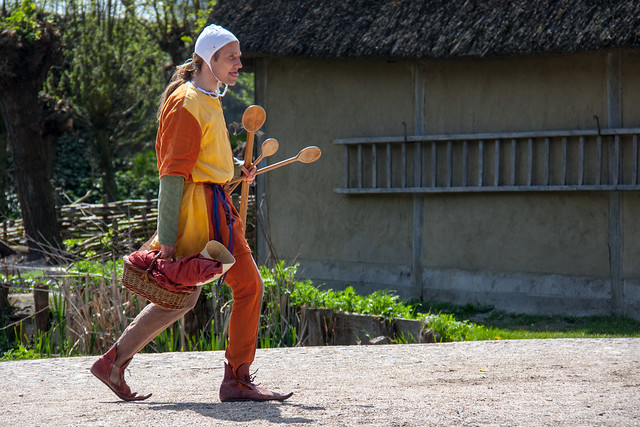Podcast: Play in new window | Download
Today we’re looking into the origins of the word circus.
A circus [ˈsɜːkəs/ˈsɝkəs] is:
- A traveling company of performers that may include acrobats, clowns, trained animals, and other novelty acts, that gives shows usually in a circular tent.
- A round open space in a town or city where multiple streets meet.
- A spectacle; a noisy fuss; a chaotic and/or crowded place.
It comes from the Latin circus [ˈkɪrkʊs̠] (orbit, circle, ring, racecourse, space where games are held), or from the Ancient Greek κίρκος [ˈkir.kos] (hawk, falcon, wolf, circle, ring, racecourse), from the Proto-Indo-European *(s)ker- (to turn, bend) [source].
Some English words from the same PIE root include: corona, crisp, crest, cross, crown, curb, curtain, curve, ring and rink, [source].
In Old English the word for circus was hringsetl [ˈr̥iŋɡˌsetl], from hring (ring) and setl (residence, seat, bench, throne). This was replaced by circus in about the 14th century [source].
At first circus referred to ancient Roman ampitheatres or buildings used for chariot races. By the early 18th century it meant buildings arranged in a ring or a circular road, as in Piccadilly Circus, and by the late 18th century it refered to an arena for performances of acrobatics, horsemanship etc,and later extented to refer to the performers and their performance [source].
Here’s a video I made of this information:
Video made with Doodly [afflilate link].
I also write about words, etymology and other language-related topics on the Omniglot Blog, and I explore etymological connections between Celtic languages on the Celtiadur.
You can also listen to this podcast on: Apple Podcasts, Amazon Music, Stitcher, TuneIn, Podchaser, PlayerFM or podtail.
If you would like to support this podcast, you can make a donation via PayPal or Patreon, or contribute to Omniglot in other ways.











